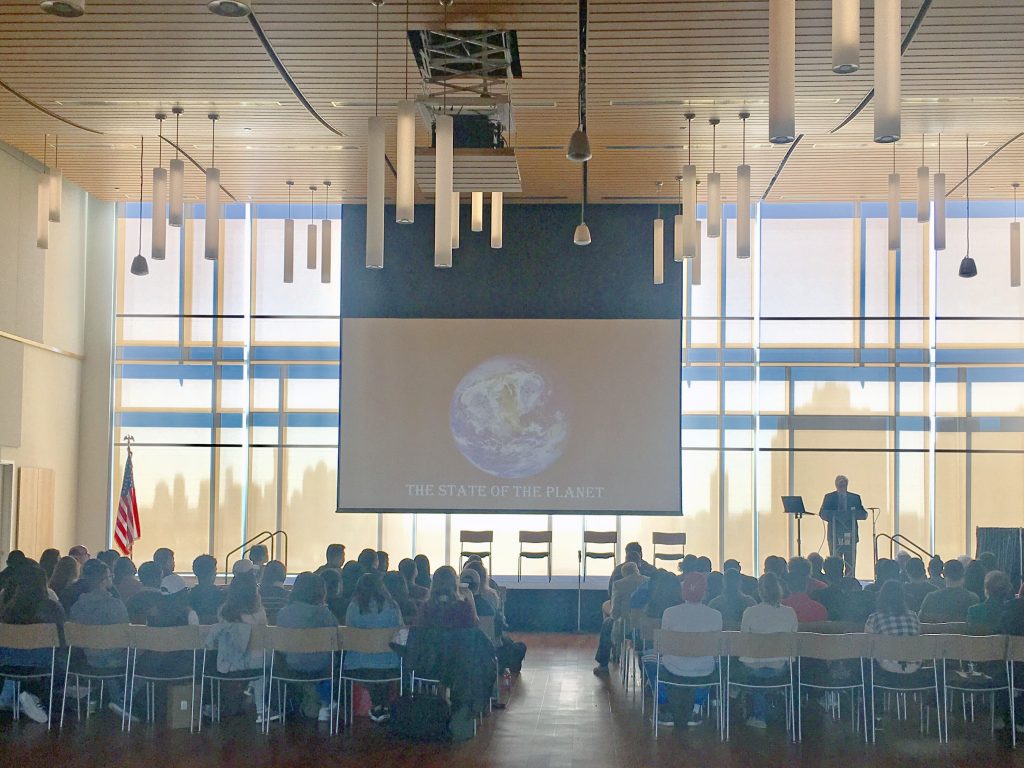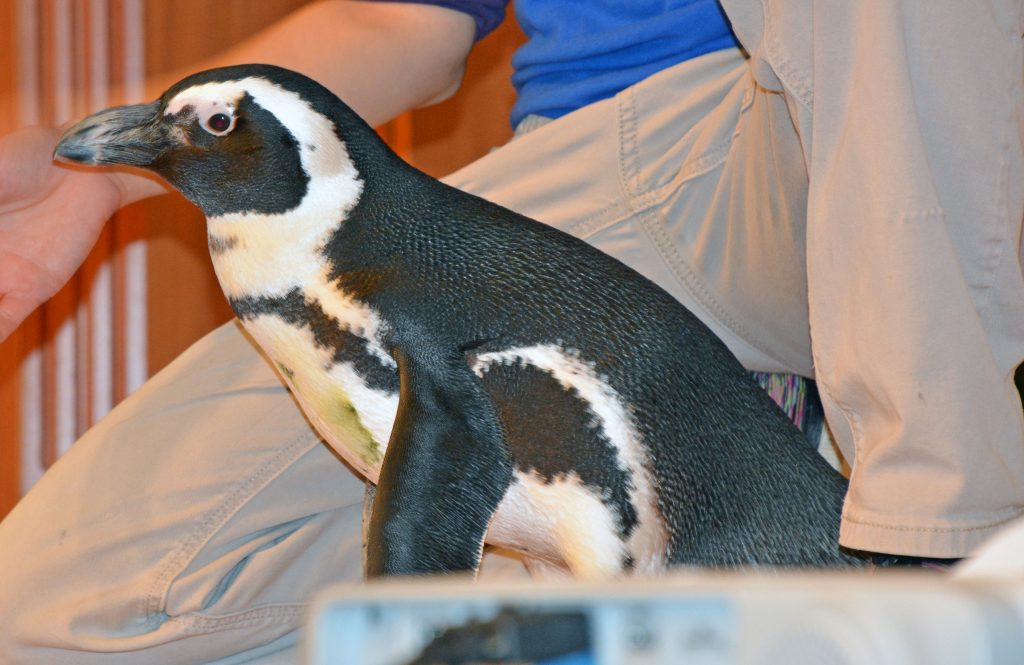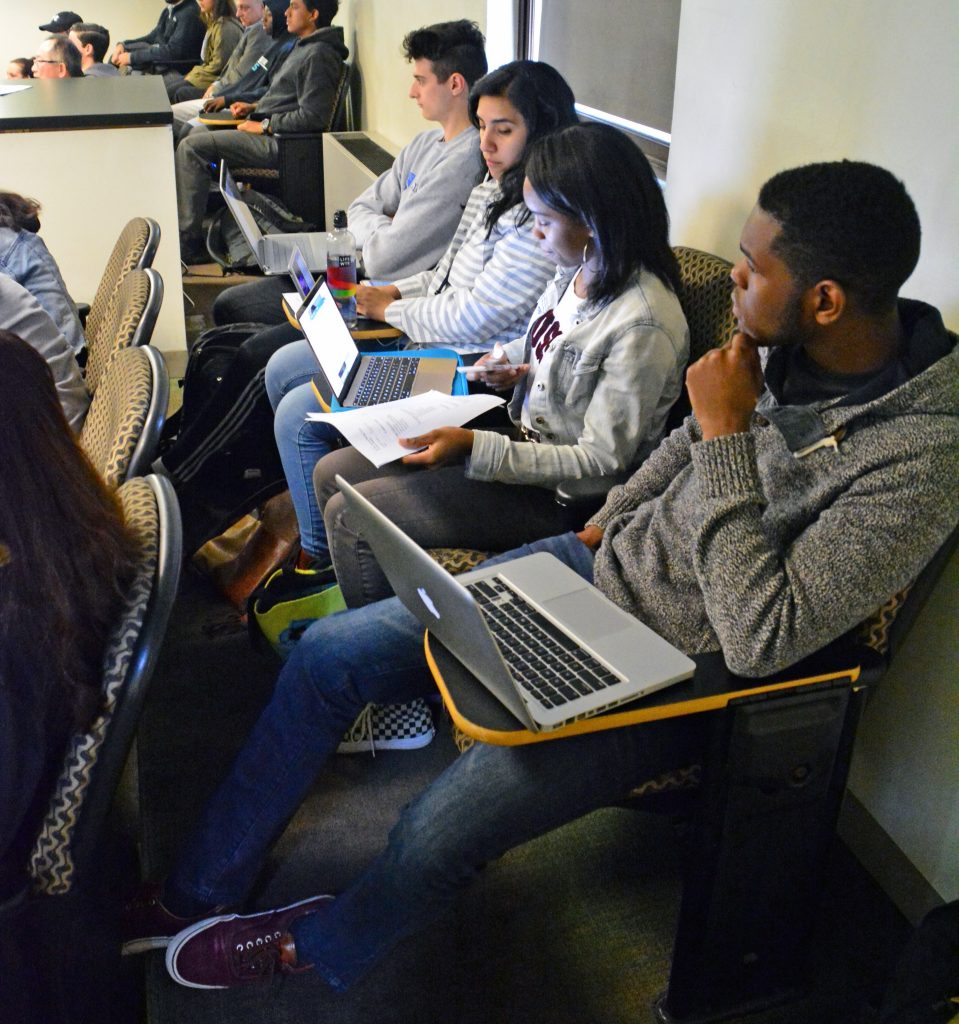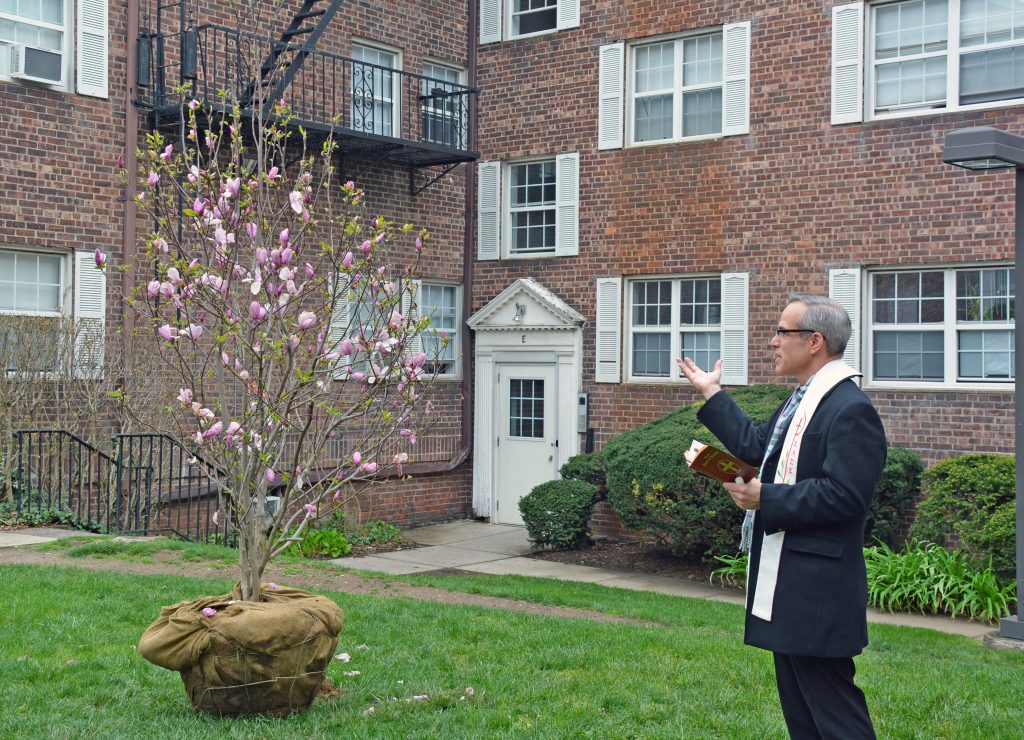
Dr. Gutsch Presents his Research on the “State of the Planet”
Saint Peter’s University is committed to fostering green energy and sustainable practices. The University celebrates Sustainability Week in April to highlight these practices and to improve sustainability knowledge. This year, the week featured panel discussions and speeches from leaders in the sustainability industry, a tree planting, events linked to sustainability and a visit from penguins.
To start the week, the event “Penguin Pointers” featured live penguins from Jenkinson’s Aquarium in Point Pleasant, N.J. At the event, guests learned about the world of penguin biology, geography, care, feeding and conservation.
At the official kick-off event in The Duncan Family Sky Room, esteemed sustainability experts, H.E. Caleb Otto, Palau ambassador to the United Nations; John L. Cusak, president of Gifford Park Associates; Leila Costa, senior manager of sustainability support for Sodexo; and William Gutsch, Ph.D., distinguished professor of the College of Arts and Sciences at Saint Peter’s University, discussed ways in which they promote sustainability within their companies and their  research. The panel provided the audience with a chance to talk with important, knowledgeable experts in their fields.
research. The panel provided the audience with a chance to talk with important, knowledgeable experts in their fields.
Bruce B. Rosenthal, M.B.A., Ph.D., KPMG founding dean of the School of Business, introduced the panel and provided a definition of “sustainability.”
“Sustainability is meeting the needs of the current generation and maintaining those needs for future generations,” Dr. Rosenthal said. “Businesses now have to focus on the triple bottom line, which is people, planet and profit,” he continued, stressing the importance of sustainability, which is a key area of focus in the School of Business. Lastly, he stated, “Sustainability week focuses on students. They need to do a better job than past generations.”
Dr. Gutsch then presented his research focusing on the Arctic, stressing that humans have a huge impact on the world and on climate change.
“What goes around comes around. Global warming is global,” he said. “The arctic is in crisis and because the planet is a closed circuit, the planet is in a crisis.”

Students Learn about an Ethos of Sustainabilty from Shana Weber, Ph.D., from Princeton University
His presentation continued with shocking graphs and pictures, including sea ice melting and proof that animal habitats are being destroyed.
“We are currently living in the greatest age of mass extinction,” Dr. Gutsch said. “This is the century we either save the planet or bury the planet,” he said. Even though the audience had seen unpleasant images, he left them with the hope that adapting a culture of sustainability will help to restore the Earth. He encouraged the audience to speak out and to write to the people in Washington who are making important decisions.
“It is up to us to heal the planet and heal ourselves in the process,” he concluded.
In addition to Dr. Gutsch, students heard from Leila Costa, senior manager of sustainability support for Sodexo. She discussed how Sodexo improves quality of life and respects sustainability practices. Sodexo has specific sustainability commitments, such as a 34 percent carbon reduction by 2020 and a zero waste to landfill goal. In general, they are trying to reduce energy and waste by raising awareness, improving process, measuring their impact and sharing their expertise. Sodexo works closely with farmers and they strive to get local food, build local connections and offer community service incentives such as the Cereal in a Cup Campaign and The Campus Kitchen Project.
Later in the week, Shana Weber, Ph.D., director of the Office of Sustainability at Princeton University, and president of the New Jersey Higher Education Partnership for

Fr. Rocco Danzi, S.J., Blesses the Flowering Magnolia
Sustainability (NJHEPS), gave a talk titled, “Cultivating an Ethos of Sustainability on Campus, for the World.” She works with Princeton University to create a gateway to different attitudes and behaviors and works to cultivate a culture of sustainability.
“Campuses are a great place to explore questions about sustainability because they strive to nurture the whole person, not just the intellect,” Dr. Weber stated. “We need to think of ourselves as an active partner in Earth’s natural systems. It is impossible to think of ourselves as separate. We are only here and alive because of Earth’s natural systems.”
The week ended with a celebratory planting of a flowering magnolia on the lawn of the 140 residential complex. Frances Raleigh, Ph.D., professor of biology, spoke at the event about the importance of trees in the environment. Rev. Rocco Danzi, S.J., vice president for mission and ministry, blessed the tree. BrightView generously donated the magnolia.
